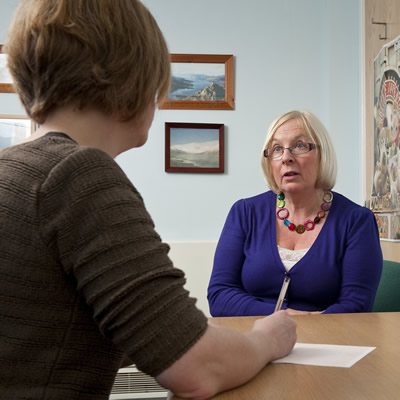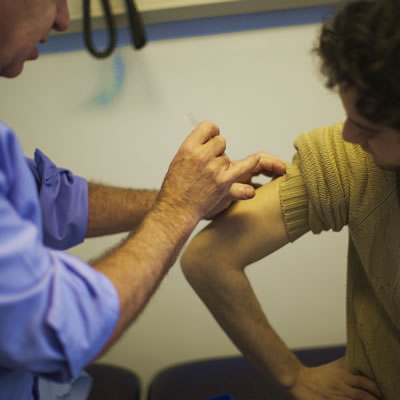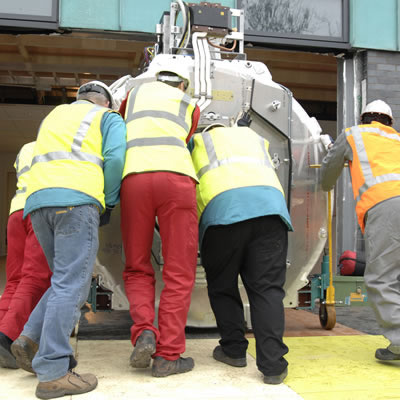
© Crown Copyright 2009
A good place to start is to check with your GP and make sure you fully understand your COPD, your medications and how to stay as well as you can. This includes getting your flu vaccination, attending follow up appointments and so on.
Discuss your work with your GP. How much physical effort you need, what the work environment is like, can you fit in your medication around your work day?
You may be offered a place at a pulmonary rehabilitation class or you may be referred to a specialist respiratory physiotherapist for breathing control techniques or chest clearance.
Think about the routine tasks you need to do and how you do them.There may be things which you can change to make work easier.
- If your work involves a lot of talking try to take rests. Talking all day can be tiring if you are breathless.
- Use a case on wheels or a trolley to carry items around at work and avoid heavy lifting.
- If you have to move objects try to roll, push or slide rather than lift. Get someone to help. Ask about a health and safety course on safe moving and handling at work.
- Break up strenuous tasks in to smaller jobs pacing yourself as you go.















